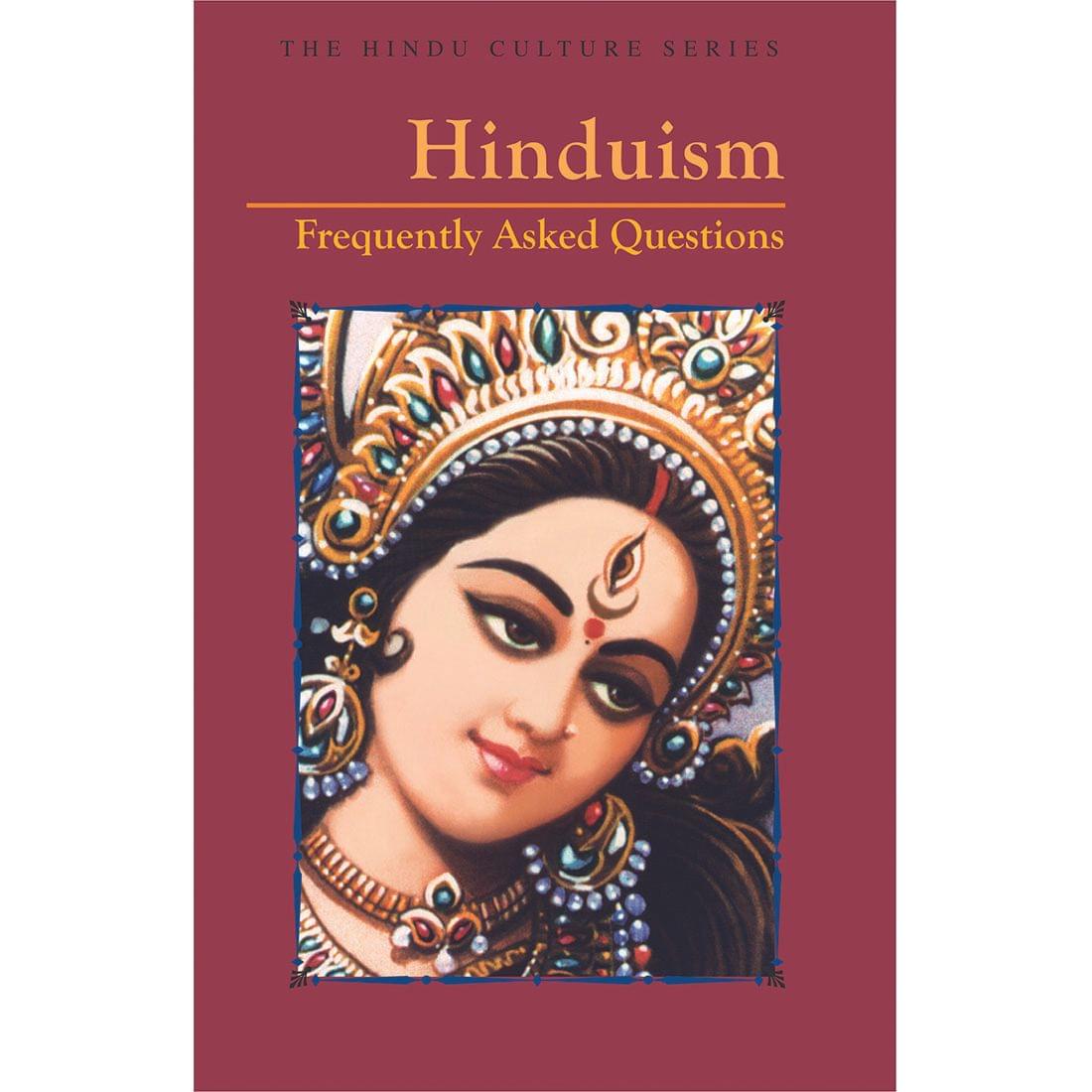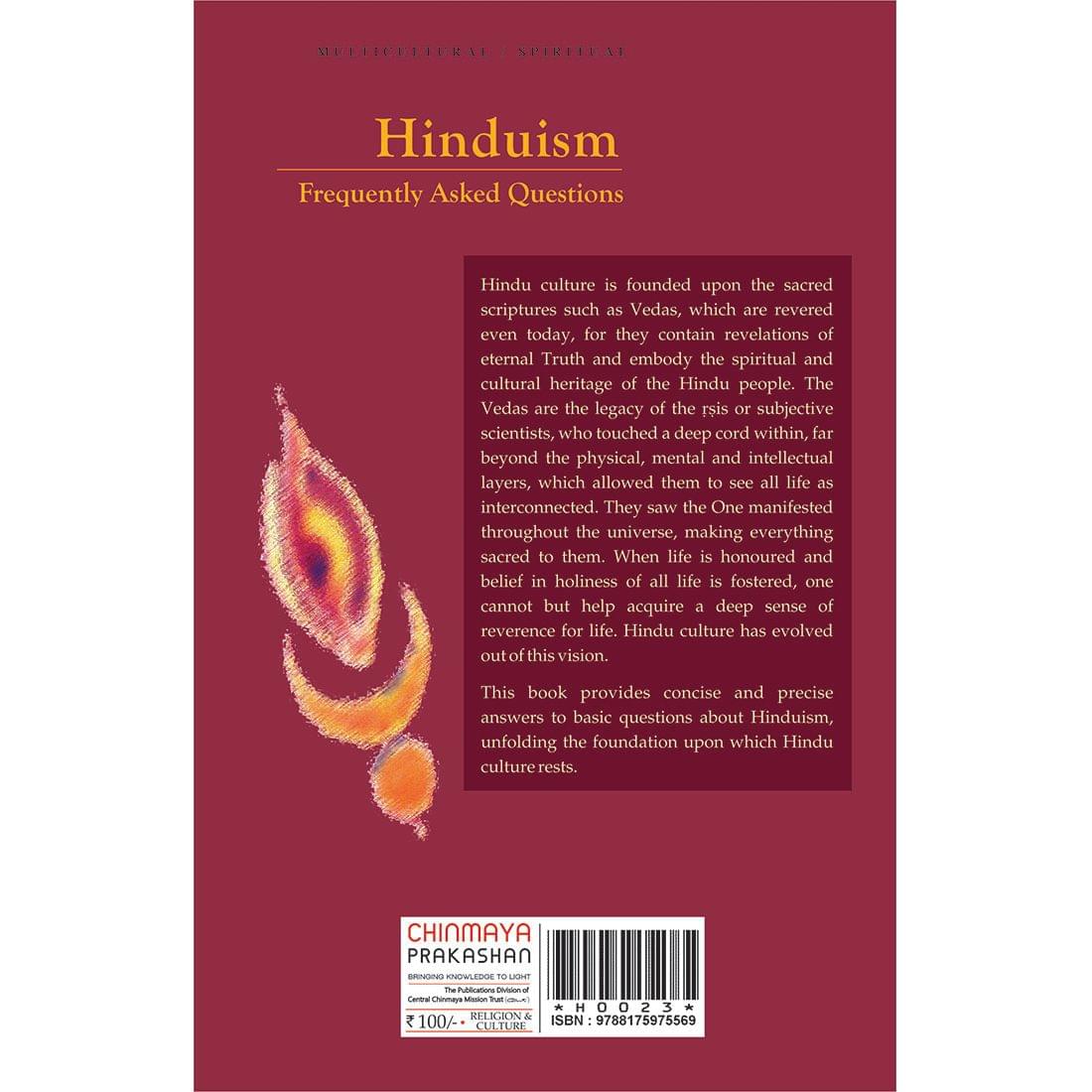Swami Chinmayananda
Hinduism - Frequently Asked Questions is backordered and will ship as soon as it is back in stock.
Couldn't load pickup availability
Make a bulk order enquiry
Product Description

Inspiring Right Living

Rooted in Wisdom

An Offering of Love

Product of Bharat
Product Description
Hindu culture is founded upon the sacred scriptures such as Vedas, which are revered even today, for they contain revelations of eternal Truth and embody the spiritual and cultural heritage of the HIndu people. The Vedas are the legacy of the rishis or subjective scientists, who touched a deep cord within, far beyond the physical, mental and intellectual layers, which allowed them to see all life as interconnected. They saw the One manifested throughout the universe, making everything sacred to them. When life is honoured and belief in holiness of all life is fostered, one cannot but help acquire a deep sense of reverence for life. Hindu culture has evolved out of this vision.
This book provides concise and precise answers to basic questions about Hinduism, unfolding the foundation upon which Hindu culture rests.













